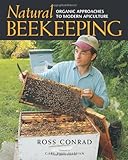The Profitable Hobby Farm, How to Build a Sustainable Local Foods Business
 Turn your hobby farm into a successful businessNo experience in farming? No problem! The Profitable Hobby Farm gives you all the tools you need to launch a thriving hobby farm business. Based on the author's expert guidance and the motivating experiences of other small farmers, it shows you how to blend strategy, marketing, and money management in order to prosper.The Profitable Hobby Farm provides sound, friendly start-up advice on a variety of topics essential to making an initial foray into a local foods venture.A must-read book for raising and selling local, sustainable foodsIncludes sample business ...
Turn your hobby farm into a successful businessNo experience in farming? No problem! The Profitable Hobby Farm gives you all the tools you need to launch a thriving hobby farm business. Based on the author's expert guidance and the motivating experiences of other small farmers, it shows you how to blend strategy, marketing, and money management in order to prosper.The Profitable Hobby Farm provides sound, friendly start-up advice on a variety of topics essential to making an initial foray into a local foods venture.A must-read book for raising and selling local, sustainable foodsIncludes sample business ...
Related Products
The Real Cost of Cheap Food
This challenging but accessible book critically examines the dominant food regime on its own terms, by seriously asking whether we can afford cheap food and exploring what exactly cheap food affords us. Detailing the numerous ways that food has become reduced to a state, such as a price per ounce, combination of nutrients, yield per acre, or calories, the book argues for a more contextual understanding of food when debating its affordability. The author makes a compelling case for why today's global food system produces just the opposite of what it promises. The food produced under this regime is in fact exceedingly expensive. Thus meat production and consumption are inefficient uses of resources and contribute to climate change; the use of pesticides in industrial-scale agriculture may produce cheap food, but there are hidden costs to environmental protection, human health and biodiversity conservation. Many of these costs will be paid for by future generations cheap food today may mean expensive food tomorrow. By systematically assessing these costs the book delves into issues related, but not limited, to international development, national security, health care, industrial meat production, organic farming, corporate responsibility, government subsidies, food aid and global commodity markets. The book concludes by suggesting ways forward, going beyond the usual solutions such as farmers markets, community supported agriculture, and community gardens. Exploding the myth of cheap food requires we have at our disposal a host of practices and policies. Some of those proposed and explored include microloans, subsidies for consumers, vertical agriculture, and the democratization of subsidies for producers.
Natural Beekeeping: Organic Approaches to Modern Apiculture
The various chemicals used in beekeeping have, for the past decades, held “Varroa Destructor,” a mite, and other major pests at bay, but chemical resistance is building and evolution threatens to overtake the best that laboratory chemists have to offer. In fact, there is evidence that chemical treatments are making the problem worse. “Natural Beekeeping” flips the script on traditional approaches by proposing a program of selective breeding and natural hive management. Conrad brings together the best organic and natural approaches to keeping honeybees healthy and productive. Readers will learn about nontoxic methods of controlling mites, eliminating American foulbrood disease (without the use of antibiotics), breeding strategies, and many other tips and techniques for maintaining healthy hives. Specific concepts and detailed management techniques are covered in a matter-of-fact, easy-to-implement way. “Natural Beekeeping” describes opportunities for the seasoned professional to modify existing operations, increase profits, and eliminate the use of chemical treatments. Beginners will need no other book to guide them. Whether you are an experienced apiculturist looking for ideas to develop an integrated pest management approach or someone who wants to sell honey at a premium price, this is the book you've been waiting for.



